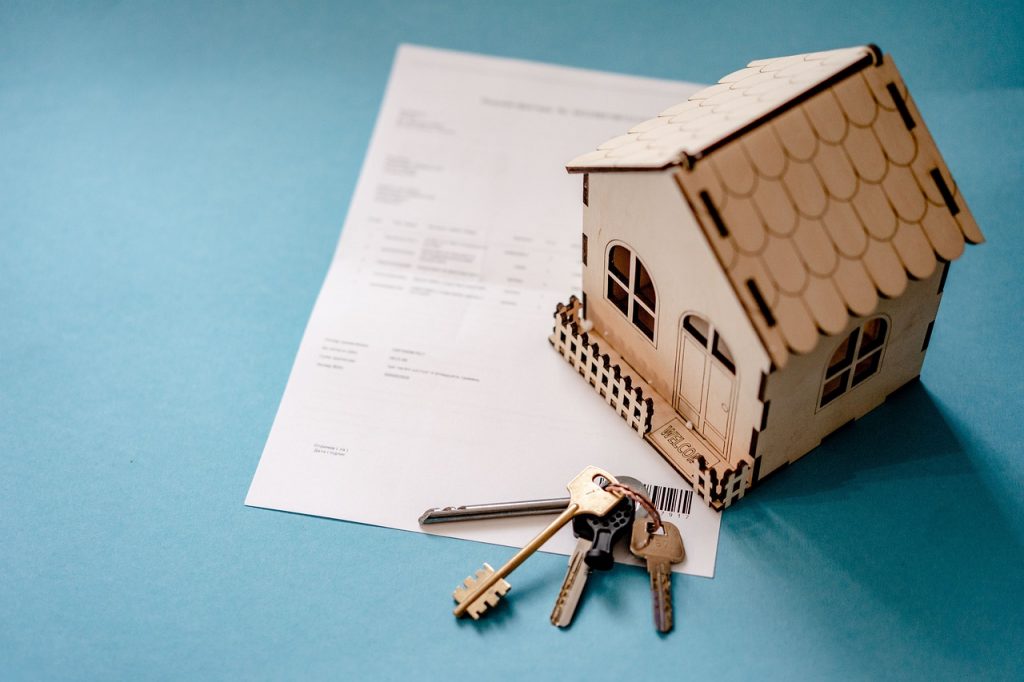Mortgage prepayment refers to the act of making additional payments towards your mortgage principal, reducing the outstanding balance before the scheduled payment term. This proactive approach to loan repayment offers numerous advantages for homeowners. By understanding the benefits of mortgage prepayment, you can make informed financial decisions that align with your long-term goals. In this article, we will explore the advantages of mortgage prepayment and provide guidance on how to implement it effectively.
1. Introduction
Before delving into the benefits, let’s first establish a clear understanding of mortgage prepayment. When you take out a mortgage to purchase a home, you agree to a predetermined payment schedule over a specific period, typically ranging from 15 to 30 years. Each payment covers both the interest and a portion of the principal. However, mortgage prepayment allows you to pay more than the scheduled amount, enabling you to accelerate the process of loan repayment.
2. What is Mortgage Prepayment?
Mortgage prepayment involves making additional payments towards your mortgage principal, either as one-time lump sum payments or by increasing your regular payment amount. These extra payments directly reduce the outstanding loan balance, effectively shortening the repayment term and saving you money on interest payments over time.
3. The Benefits of Mortgage Prepayment
3.1. Saving Money on Interest
One of the primary benefits of mortgage prepayment is the potential for significant interest savings. Since mortgage interest is calculated based on the outstanding principal balance, reducing the principal through prepayment can result in substantial savings over the life of the loan. By making additional payments towards your mortgage, you decrease the amount of interest accruing on the remaining balance, ultimately paying less interest over time.
3.2. Reducing Debt
Mortgage prepayment allows you to reduce your overall debt at an accelerated pace. By making extra payments towards the principal, you effectively decrease the total amount owed, bringing you closer to full homeownership. This can provide a sense of financial security and peace of mind, knowing that you are steadily making progress towards being debt-free.
3.3. Building Equity
Building equity in your home is an important long-term financial goal. Equity represents the portion of your home’s value that you truly own. Through mortgage prepayment, you can increase your equity faster, as you are effectively paying down your loan balance ahead of schedule. This can be particularly beneficial if you plan to sell your home in the future or utilize your equity for other financial endeavors.
3.4. Shortening the Loan Term
By making extra mortgage payments, you have the power to shorten the loan term significantly. When you prepay your mortgage, you reduce the principal balance, which directly affects the remaining payment period. As a result, you can potentially shave off several years from your mortgage term, enabling you to become mortgage-free sooner. This not only saves you money on interest but also grants you financial freedom earlier in life.
3.5. Improving Credit Score
Mortgage prepayment can have a positive impact on your credit score. When you make extra payments and reduce your outstanding debt, you demonstrate responsible financial behavior to lenders and credit agencies. As a result, your credit utilization ratio improves, which is a key factor in determining your credit score. A higher credit score can open doors to better interest rates on future loans and credit opportunities.
3.6. Flexibility and Financial Freedom
Another advantage of mortgage prepayment is the flexibility it offers. By paying down your mortgage faster, you free up future cash flow. This can provide you with more financial flexibility to pursue other goals, such as investing, saving for retirement, or funding your children’s education. Mortgage prepayment empowers you to take control of your financial future and create a path towards greater financial freedom.
4. How to Prepay Your Mortgage
Now that you understand the benefits, let’s explore some practical strategies for mortgage prepayment. Here are a few effective methods you can consider:
4.1. Make Extra Payments
The simplest way to prepay your mortgage is by making additional payments towards the principal. Whenever you have extra funds available, consider allocating them towards your mortgage. Even small additional payments can make a significant difference over time.
4.2. Bi-Weekly Payments
Switching to a bi-weekly payment schedule can accelerate your mortgage payoff. By making half of your monthly payment every two weeks, you end up making an extra month’s payment each year. This helps reduce the principal faster and save on interest.
4.3. Lump Sum Payments
If you receive a bonus, tax refund, or any unexpected windfall, consider using a portion of it to make a lump sum payment towards your mortgage. This can have a substantial impact on reducing the principal and shortening the loan term.
4.4. Refinancing
Refinancing your mortgage can be a strategic move to prepay your loan. By refinancing to a lower interest rate or a shorter term, you can save money on interest and potentially increase your monthly payment towards the principal.
5. Factors to Consider Before Prepaying Your Mortgage
While mortgage prepayment offers significant benefits, it’s essential to consider some factors before implementing this strategy. Here are a few considerations:
5.1. Interest Rates
Evaluate the current interest rate on your mortgage and compare it to other potential investment opportunities. If the interest rate on your mortgage is relatively low, it might be more beneficial to invest extra funds elsewhere where you can earn a higher return.
5.2. Other Debt
Before focusing on mortgage prepayment, assess your other outstanding debts, such as high-interest credit card debt or student loans. It may be wiser to prioritize paying off these debts first before allocating additional funds towards your mortgage.
5.3. Emergency Savings
Ensure you have an adequate emergency fund in place before prepaying your mortgage. Having sufficient savings to cover unexpected expenses or income loss provides financial security and prevents you from potentially needing to borrow money in the future.
5.4. Retirement Contributions
Consider the impact of mortgage prepayment on your retirement savings. It’s crucial to strike a balance between paying down your mortgage and contributing towards your retirement accounts. Maximize any employer matching contributions and weigh the long-term benefits of retirement savings against mortgage prepayment.
5.5. Future Financial Goals
Evaluate your long-term financial goals and priorities. If you have other significant financial goals, such as starting a business, saving for your children’s education, or purchasing another property, consider how mortgage prepayment aligns with those objectives.
6. Conclusion
Mortgage prepayment offers numerous benefits for homeowners, including saving money on interest, reducing debt, building equity, shortening the loan term, improving credit score, and gaining financial flexibility. By understanding the advantages and considering relevant factors, you can make informed decisions about prepaying your mortgage and take control of your financial future.
7. FAQs
Q1: Will mortgage prepayment save me money?
Yes, mortgage prepayment can result in significant savings over the life of your loan by reducing the amount of interest you pay.
Q2: Should I prepay my mortgage if I plan to move soon?
If you anticipate selling your home in the near future, carefully consider the costs and benefits of mortgage prepayment, as it may not provide substantial advantages in a short period.
Q3: Is mortgage prepayment the same as refinancing?
No, mortgage prepayment involves making extra payments towards your existing mortgage, while refinancing entails replacing your current mortgage with a new one, often with different terms and interest rates.
Q4: Can I prepay my mortgage if I have a fixed-rate mortgage?
Yes, you can prepay your mortgage regardless of whether you have a fixed-rate or adjustable-rate mortgage. However, check if your mortgage agreement imposes any prepayment penalties.
Q5: Should I consult a financial advisor before prepaying my mortgage?
Seeking advice from a financial advisor can provide personalized guidance based on your unique financial situation and goals, helping you make informed decisions about mortgage prepayment.





